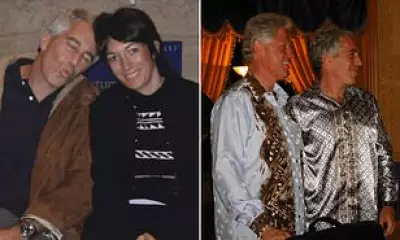
A convicted murderer and rapist serving life imprisonment sent a chillingly prophetic signal during a television interview just days before his horrific crimes were exposed to the world.
Ben Geen, then working as a nurse in Oxfordshire, appeared in a BBC documentary about the NHS winter crisis in 2004, seemingly the picture of dedication. Little did viewers know they were watching a man who would soon be revealed as a dangerous predator.
The Chilling Broadcast
During the interview, Geen made a bizarre and unsettling gesture – miming a gun with his fingers and pointing it directly at the camera. This sinister act occurred mere days before his arrest for the attempted murder of two patients and the actual murder of two others.
Former Detective Superintendent Rob Mason, who led the investigation, described the moment as particularly disturbing. "He's almost playing to the camera," Mason stated. "There's almost a degree of narcissism... he's actually making a gesture of a gun with his hand."
A Trail of Destruction
Geen's crimes shocked the medical community and the nation. The nurse, who worked at Horton General Hospital in Banbury, was found guilty of injecting victims with potentially lethal drugs to create medical emergencies – seemingly for the thrill of then attempting to revive them.
His sentencing judge described him as "a serious danger to others" and imposed a life sentence with a minimum term of 30 years. The court heard how Geen had specifically targeted vulnerable patients, leaving a trail of devastation in his wake.
Revelations from the Investigation
The recent documentary "The Hospital" explores how Geen's appearance on television ultimately helped police secure his conviction. Detectives noticed concerning patterns in patient emergencies that coincided with Geen's shifts, eventually uncovering his monstrous double life.
This case remains one of the most disturbing in NHS history, raising serious questions about patient safety and the psychological profiling of healthcare workers. Geen continues to serve his sentence while families of victims continue to seek answers about how such crimes could occur within a trusted hospital environment.





